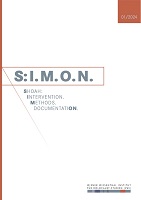North Africa and the Holocaust European: Colonialism, Nazism, and Local Agency
North Africa and the Holocaust European: Colonialism, Nazism, and Local Agency
Author(s): Patrick BernhardSubject(s): Political history, Social history, WW II and following years (1940 - 1949), Fascism, Nazism and WW II, History of the Holocaust, History of Antisemitism
Published by: Wiener Wiesenthal Institut für Holocaust-Studien
Keywords: colonialism; Albert Memmi; antisemitism; Holocaust; North Africa; entangled and transnational history;
Summary/Abstract: To this day, the problem of relating colonialism to National Socialism remains highly controversial among scholars and a broader public. So far, comparisons have been drawn between the German presence in Africa during the German Empire and the Nazi extermination policy in Eastern Europe forty years later. This article, however, examines from a transnational perspective how the Holocaust that was initiated and driven by the Nazi state played out on colonial soil in North Africa, when the region became an important theatre of World War Two and the 450,000 Jewish people living there became the focus of persecution. The article argues that the exclusion, persecution, and partial murder of Jewish people in North Africa was strongly influenced by colonial traditions of violence against Arabs and Berbers. Under the conditions of World War Two, and fuelled by the Third Reich, the two phenomena overlapped and intersected, which in turn helps to explain the dynamics of violence that we can observe in the region. At the same time, however, this perspective highlights the agency of local non-Jewish populations, which ranged from helping persecuted Jewish people to actively supporting the Nazi regime and its allies.
Journal: S:I.M.O.N. Shoah: Intervention. Methods. Documentation.
- Issue Year: 11/2024
- Issue No: 1
- Page Range: 4-22
- Page Count: 19
- Language: English

